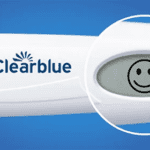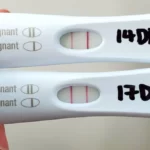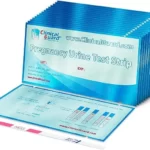
When it comes to pregnancy tests, there are numerous methods, both conventional and unconventional, that claim to give accurate results. One such method that has been making waves is the Salt Pregnancy Test. But is it reliable? Can something as simple as salt really indicate pregnancy? In this article, we aim to explore the truth behind the Salt Pregnancy Test: Myth or Miracle?
Related: How to Prepare for Pregnancy After 40?
What is Salt Pregnancy Test?
The salt pregnancy test is a DIY pregnancy test that involves mixing salt and urine to determine if you’re pregnant. Proponents of the test claim that if you’re pregnant, the salt will react with a hormone called human chorionic gonadotropin (hCG), which is present in your urine after an embryo implants in your uterus. However, it’s important to note that there is no scientific evidence supporting this claim.
Related: 8 Best Ways To Avoid Pregnancy Naturally
What is the Science Behind the Salt Pregnancy Test?
There is no scientific explanation for how the salt pregnancy test works. Proponents of the test claim that if you’re pregnant, the salt will react with a hormone called human chorionic gonadotropin (hCG), which enters your bloodstream and urine after an embryo implants in your uterus. However, there is no scientific evidence to support this claim. The salt pregnancy test is not believed to be fully accurate.
Related: Can You Take Mucinex To Get Pregnant?
How is Salt Pregnancy Test Performed?

To perform the salt pregnancy test, you would typically combine a tablespoon or two of salt with a sample of your morning urine and wait a few minutes to a few hours. If the mixture turns “milky” or “cheesy,” it is believed to indicate pregnancy. However, it’s important to remember that the salt pregnancy test is not scientifically validated and should not be relied upon for accurate results.
What is the Truth about Salt Pregnancy Test?
As intriguing as the concept of the Salt Pregnancy Test may seem, it is essential to approach it with skepticism. Several scientific experts and medical professionals have debunked this method, pointing out that it lacks scientific evidence and reliability. Let’s take a closer look at some of the key reasons why the Salt Pregnancy Test should not be considered a reliable indicator of pregnancy:
Unreliable Results
The Salt Pregnancy Test’s main flaw is its lack of consistency in results. Different factors, such as the concentration of hCG in the urine, the amount of salt used, and even the timing of the test, can all influence the outcome. This unpredictability makes it impossible to draw accurate conclusions.
No Scientific Backing
Despite the claims made by some proponents, there is no scientific research or medical study that supports the accuracy or effectiveness of the Salt Pregnancy Test. It remains a folk remedy without any concrete evidence.
Risk of Misinterpretation
The results of the Salt Pregnancy Test can be subjective and open to interpretation. The appearance of bubbles or froth in the mixture is often considered a positive result, but such visual cues can be influenced by external factors like temperature and humidity.
Potential Health Risks
Relying on the Salt Pregnancy Test as a sole method of confirming pregnancy can be dangerous. Delaying proper medical care and prenatal attention may lead to adverse consequences for both the mother and the unborn child.
Related: How Soon After Giving Birth Can You Get Pregnant?
Are There Any Safe DIY Pregnancy Tests?
While the Salt Pregnancy Test may be an unreliable option, there are other DIY pregnancy tests that are considered safer and more effective. However, it’s essential to remember that no DIY test can replace the accuracy of medical-grade pregnancy test kits or professional consultation. Some alternative DIY tests include:
Urine in a Jar Test
Collect a sample of your urine in a jar and let it sit for a few hours. If a white film forms on the surface of the urine, it may indicate pregnancy.
Toothpaste Pregnancy Test
This test involves mixing urine with white toothpaste. Advocates claim that a chemical reaction occurs in the presence of hCG, resulting in a change in color or texture.
Sugar Pregnancy Test
In this method, a mixture of urine and sugar is observed for clumping, which some believe indicates pregnancy.
Bleach Pregnancy Test
Similar to the Salt Pregnancy Test, this DIY test involves mixing urine with bleach and observing the reaction for supposed signs of pregnancy.
White Vinegar Test
Mix a sample of your urine with white vinegar in a clean bowl. If the mixture changes color or fizzes, it may indicate pregnancy.
Tylenol and Hydrogen Peroxide Test
Crush a Tylenol tablet and mix it with hydrogen peroxide in a clean container. Add a sample of your urine to the mixture. If the mixture changes color, it may indicate pregnancy.
Related: How Many Days After Sex Can You Take A Pregnancy Test?
Why do Some People still use the Salt Pregnancy Test despite the lack of Scientific Evidence?
Despite the lack of scientific evidence, some people still use the salt pregnancy test for various reasons. Here are some possible reasons why:
- Cost: The salt pregnancy test is much cheaper than commercially available pregnancy tests. Some women may prefer to use the salt pregnancy test as a cost-effective alternative.
- Convenience: The salt pregnancy test is easy to perform and can be done at home with readily available ingredients. Some women may prefer the convenience of performing the test at home rather than going to a healthcare professional or purchasing a commercial test.
- Curiosity: Some women may be curious to try the salt pregnancy test as an experiment or to see if it works. While the test is not scientifically validated, some women may still want to try it out of curiosity.
What is the Importance of Medical Pregnancy Tests?
While DIY pregnancy tests might seem convenient and cost-effective, it is crucial to prioritize accurate results and the health of both the mother and the baby. Medical-grade pregnancy tests, available at drugstores and healthcare facilities, are designed to provide reliable results and are backed by scientific research and approvals.
Medical pregnancy tests detect hCG levels more accurately and have a higher sensitivity threshold, allowing for earlier detection of pregnancy. Additionally, consulting a healthcare professional ensures proper prenatal care and support for expectant mothers.
What is the Most Reliable Way to Confirm a Pregnancy?
The most reliable way to confirm a pregnancy is through medical methods such as:
- In-office blood test: An in-office blood test performed by a healthcare provider can accurately detect pregnancy by measuring the levels of human chorionic gonadotropin (hCG) in the blood. This method is highly accurate and can detect pregnancy earlier than urine tests.
- Urine test at a healthcare provider’s office: Healthcare providers can also perform urine tests using more sensitive and accurate methods than over-the-counter home pregnancy tests. These tests detect the presence of hCG in the urine.
- Ultrasound: An ultrasound performed by a healthcare provider can confirm pregnancy by visualizing the presence of a gestational sac or embryo in the uterus. This method is especially useful in later stages of pregnancy.
It’s important to note that commercially available home pregnancy tests can also provide reliable results when used correctly and after the first day of a missed period. Some home pregnancy tests, such as First Response and Modern Fertility, have been found to be highly accurate and can be used from the day of a missed period.
Ultimately, consulting with a healthcare professional and undergoing medical testing is the most reliable way to confirm a pregnancy. They can provide accurate results and offer appropriate guidance and care throughout the pregnancy journey.
How soon after a Missed Period can a Pregnancy Test be taken?
According to the NHS, most pregnancy tests can be carried out from the first day of a missed period. If you don’t know when your next period is due, you can do the test at least 21 days after you last had unprotected sex. Some very sensitive pregnancy tests can be used even before you miss a period.
However, it is best to wait until at least the first day of a missed period to take any test for a more accurate result. For a more accurate result, take the test a week after your missed period. This is because pregnancy tests work by measuring levels of HCG, a hormone that is only present if you’re pregnant. The body only releases HCG if a fertilized egg attaches to the uterus in a process known as implantation, which usually happens around the time of your missed period. Some home pregnancy tests, such as First Response and Modern Fertility, have been found to be highly accurate and can be used from the day of a missed period.
What is the Best Time of Day to take a Pregnancy Test?
The best time to take a pregnancy test is typically in the morning with your first urine of the day. This is because the hormone human chorionic gonadotropin (hCG), which is detected by pregnancy tests, is more concentrated in the morning urine after a night of not drinking or urinating much. Taking the test in the morning can increase the accuracy of the results, especially if your period is not yet late.
However, it’s important to note that many pregnancy tests available today are sensitive enough to detect hCG at any time of the day. So, if you can’t wait until the morning, you can still take a pregnancy test at other times of the day. Just keep in mind that the concentration of hCG in your urine may vary throughout the day, which could potentially affect the accuracy of the test.
If you decide to take a pregnancy test at night, it’s important to be aware that various factors can impact the results, and a negative test at night might be followed by a positive test in the morning. If you get a negative result but still suspect you might be pregnant, it’s recommended to take another test in the morning or consult with a healthcare professional for further evaluation.
Ultimately, the most important factor is to follow the instructions provided with the specific pregnancy test you are using, as different tests may have slightly different recommendations regarding the best time to take them.
What should I do if I get a Negative Pregnancy Test but still think I might be Pregnant?
If you get a negative pregnancy test but still think you might be pregnant, here are some steps you can take:
- Retest after a few days: If you tested before your missed period, it’s possible that the levels of the pregnancy hormone human chorionic gonadotropin (hCG) in your body were not yet high enough to be detected by the test. Wait a few days and take another test to see if the result changes.
- Use a sensitive test: Some home pregnancy tests are more sensitive than others and can detect lower levels of hCG. Consider using a highly sensitive test, such as those labeled as “early detection” tests, which can detect pregnancy earlier than others.
- Follow the instructions carefully: Make sure you are following the instructions provided with the pregnancy test accurately. Using the test incorrectly can lead to false-negative results.
- Consult with a healthcare professional: If you continue to have symptoms of pregnancy or have concerns despite a negative test result, it’s a good idea to consult with a healthcare professional. They can provide further evaluation, perform a blood test to measure hCG levels, and offer guidance based on your specific situation.
- Consider other factors: Keep in mind that there could be other reasons for your symptoms or missed period, such as hormonal imbalances or other health conditions. A healthcare professional can help explore other potential causes and provide appropriate care.
Conclusion
While the idea of the Salt Pregnancy Test may be intriguing, it is essential to rely on scientifically validated methods for confirming pregnancy. DIY tests, including the Salt Pregnancy Test, lack the necessary evidence and reliability to be considered as accurate indicators. For the health and well-being of both the expectant mother and the unborn child, it is best to opt for medical-grade pregnancy tests and seek professional healthcare guidance when needed.
Remember, no matter how reliable or convenient a DIY test may claim to be, nothing can replace the expertise of medical professionals and the assurance provided by medically approved pregnancy tests. Stay informed, prioritize your health, and consult a healthcare professional for accurate and reliable pregnancy confirmation.
Frequently Asked Questions (FAQs)
Can the Salt Pregnancy Test be trusted?
No, the Salt Pregnancy Test lacks scientific evidence and reliability. It is not a recommended method for confirming pregnancy.
Are there any DIY pregnancy tests that work?
While some DIY pregnancy tests are popular, they are not as reliable as medical-grade tests. Toothpaste, sugar, and bleach pregnancy tests are examples of such DIY methods.
How soon can I take a medical-grade pregnancy test?
Most medical-grade pregnancy tests can detect hCG levels as early as 7-10 days after conception, but it is recommended to take the test after missing a period for more accurate results.
What should I do if I receive a positive result from a DIY test?
If a DIY test indicates a positive result, it is essential to follow up with a medical-grade test and consult a healthcare professional for confirmation and proper prenatal care.
Can factors like medication or medical conditions affect DIY test results?
Yes, certain medications and medical conditions may influence the results of DIY pregnancy tests, leading to false positives or negatives. Medical-grade tests are less prone to such interference.
How accurate are medical-grade pregnancy tests?
Medical-grade pregnancy tests are highly accurate when used correctly, with accuracy rates of around 97-99%.











